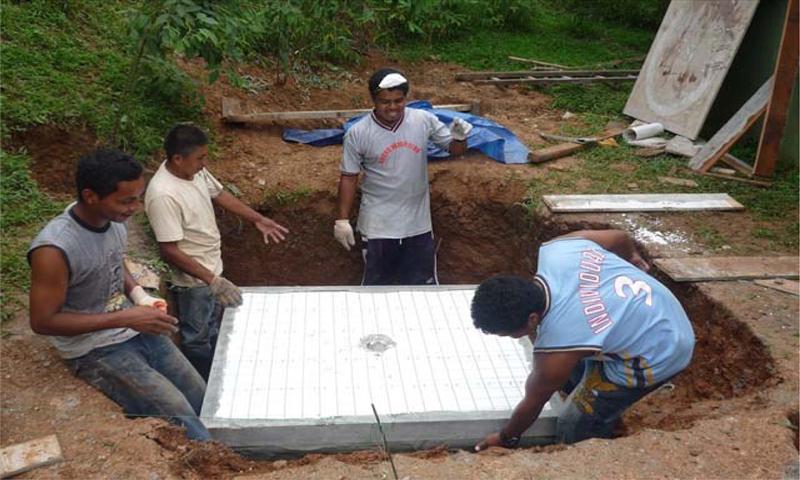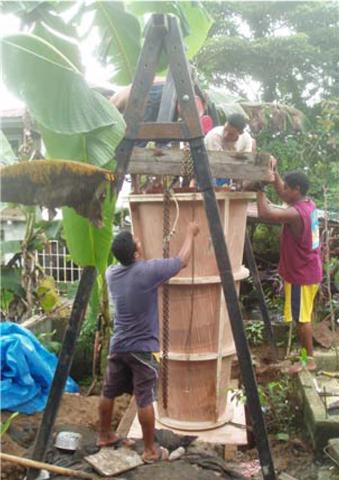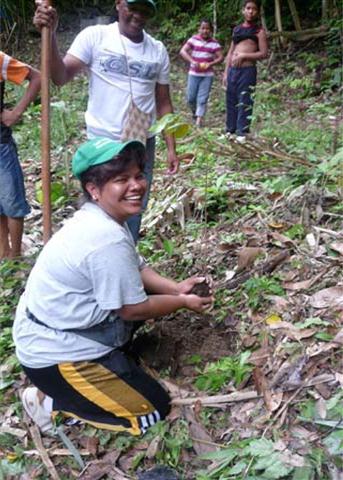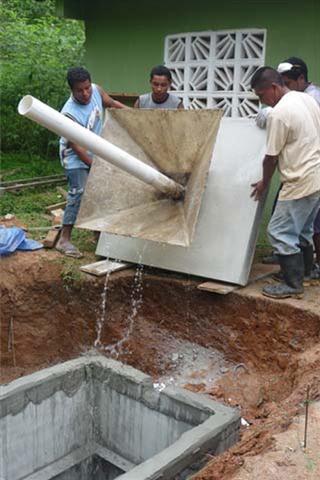Reduce, Reuse, Recycle... Including Septic Tank Waste???

Many of us who have moved to Panama are still bothered by the large amounts of garbage here. It's literally everywhere! But, believe it or not, recycling is in Panama, and it is moving further out into the countryside. Locally, Panama Coast International School in Gorgona now has a recycle depot. But recycling your septic waste?? Now there's a new one! Enter into the picture: Bridge Panama Foundation. Known in Spanish as Fundación BRIDGE Panama, the Foundation strives to help indigenous communities create their very own sustainable prosperity through cultural activities. The Foundation, which became a legal, non-profit organization in January of 2008, was created through the efforts of its three dedicated founders: Ing. Juan Morales, Lcd. Marc Chavez and Lcda. Corrin Skubin.
Together the members of the Fundación BRIDGE Panama have over 25 years of combined experience working with both indigenous and rural native communities throughout Panama. The group's mission is to encourage communication and enable the formation of collaborative relationships among native peoples and governments, as well as to support conservation and promote development organizations for the co-management of natural areas and the preservation of native cultures. The organization prides itself on the relationships and support it has provided to dozens of communities throughout the country. By living in communities and working directly with their members, Fundación BRIDGE Panama is better able to understand the needs and desires of communities and is then able to focus projects around those needs.
Throughout the last few years, the Foundation has participated in projects that have touched numerous areas of Panama’s indigenous communities including:
-
The revitalization of traditional teachings, folklore and art.
-
Assistance in preserving the indigenous language.
-
Meeting the basic needs of families, children and elders.
-
Increasing economic opportunities for communities by providing individuals with the means to build livelihoods for themselves and futures for their families.
-
Establishing and promoting international standards for responsible cultural ecotourism, building human capacity, and effective management of projects.
Fundación BRIDGE Panama's latest project is in the Chilibre area, along the watershed of the Panama Canal. Chilibre is a rural area outside of Panama City that boasts over 100,000 residents, and the Foundation’s mission there is to help clean up the watershed along the Chilibre River. Since the towns within Chilibre were not planned projects, the urban areas there have many issues dealing with proper disposal and treatment of their septic waste. Most of the families in the area have pit latrines which empty their black water directly into the areas water systems. Some of the wealthier families can afford to install septic systems, but most are built poorly and lead to problems later on down the road. In order to clean up the areas creeks and rivers, Fundación BRIDGE Panama, in conjunction with FUNDEP, is offering the residents of Chilibre a unique septic system as an alternative to the typical pit latrine.
The systems which are being installed for these families are known as biogas septic systems, and they are a little different than what you would normally see. The biogas system, widely used in many parts of the world, works in a two-phase treatment:
-
An Upward-flow Anaerobic Sludge Blanket Reactor for removal and conversion of the wastewater’s organic load into usable biogas.
-
A Constructed Wetland consisting of native and naturalized tropical species.
Putting the above into layman’s terms, a proper system for the storage of septic waste from a home is a septic tank and the biogas system works by using the gasses produced by the waste in the septic tanks as fuel for gas stoves (Step 1) which families in these communities can then use for cooking. In order to deal with the gray water, a leech field area is created in the backyard, and the families can then plant trees and other water plants in this “wetland” (Step 2) to reforest their yards. The project in this particular area ends in the beginning of November, and Fundación BRIDGE Panama hopes to continue to offer these latrines to needy communities throughout Panama.
To learn more about biogas septic systems and the ongoing work of Fundación BRIDGE Panama, visit them at www.bridgepanamafoundation.org.




